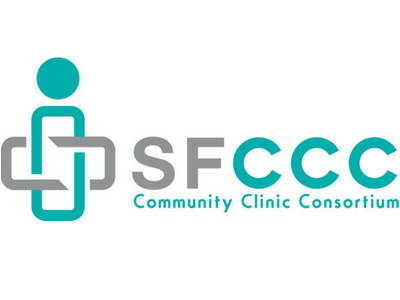Our AmeriCorps Nutrition Program Trainee at the Department of Public Health in San Francisco
Every few weeks, our NHC-SF AmeriCorps members will blog about their 2019-2020 year of service. NHC members will gain invaluable experience while supporting the health care safety net by serving at host sites such as community health centers and Department of Public Health sites to provide health education and care to vulnerable and underserved SF residents.
Hey!
My name is Xochitl, and I am serving as a Nutrition Program Trainee at the Department of Public Health in San Francisco. This is my first time being an AmeriCorps member so this experience is completely new to me. I have been serving at DPH for a little over a month now and the experience has been life changing!
During our AmeriCorps Pre Service Orientation we learned a lot about the different health disparities in San Francisco and how some communities are more affected by poverty than others. According to a lecture by Dr. Bennet Living in certain places in San Francisco makes certain populations more vulnerable to being affected by different health conditions due to air quality, access to healthy food and affordable housing. The different lectures and talks we were able to participate in during Pre Service Orientation have significantly helped shape the way I want to serve and the communities I want to help the most.
As a Nutrition Trainee I conduct Nutrition Screenings at different school sites/day cares to children ages 3-5. During one of my screenings at a home day care center that is located in an area where air quality is bad compared to other communities in San Francisco I noticed a pattern in the children I was serving. Many of the children I was screening suffered from asthma or had bad allergies. This was different to what I was seeing compared to the other sites that were located in a much safer and healthier community. This instantly grabbed my attention because I was seeing an example of Dr. Bennet’s lecture regarding health disparities in different communities in San Francisco occur right in front of me.
This experience helped remind me the reason why I decided to dedicate a year of my life serving my community. I am committed to helping the most vulnerable populations and with my position as a Nutrition Trainne at the Department of Public Health I hope to make an impact in someone or many people’s lives. Being a person of color I hope to be an inspiration or a role model. In my community there is a lack of health leaders who look like me. I want to help change the norm and allow other people from communities to see that they can also become a health leader in their community.
